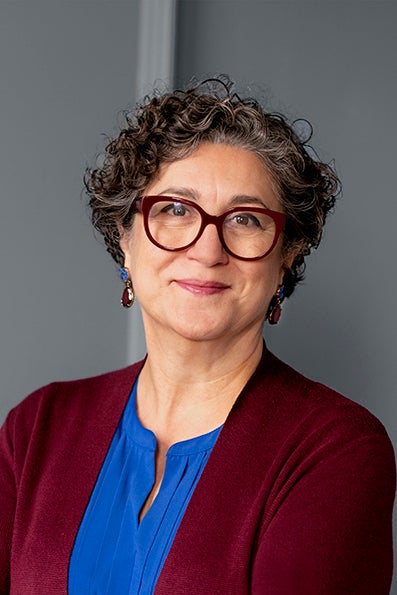Career
She came to the Netherlands as a refugee from Iran in 1988 and studied cultural anthropology and philosophy at Vrije Universiteit Amsterdam. In addition to her studies, she worked as a secretary in the anthropology department between 1992 and 1994. After completing her anthropology studies at VU Amsterdam in 1994, she started working as a PhD student at Radboud University Nijmegen (at the Centre for Women's Studies and the Anthropology Department) in 1995. After spending five years in Nijmegen, she returned to VU Amsterdam in 2000 as a University Lecturer in the Department of Culture, Organisation and Management (later Organization Sciences). Between 2005 and 2012, she was Extraordinary Professor of Management of Diversity and Integration (PaVEM Chair) at the same department.
She was a Crown Member of the SER until 2024 and is currently a member of KNAW, KHMW and State Commission against Discrimination and Racism.
Her vision
She combines insights from sociology, anthropology, women's studies, organisational studies and philosophy and proposes a critical approach to diversity and inclusion. In addition, through a co-creative form of narrative methodology, she demonstrates the importance of migrant and refugee perspectives in creating more inclusive structures.
Research Lab Refugee Academy
In 2017, together with Elena Ponzoni, she initiated Research Lab Refugee Academy with the aim of bridging the gap between science and society around the refugee issue by contributing to improving social conditions for sustainable integration of refugees. Since 2024, the refugee academy has become part of Research Lab, Co-creation for inclusive knowledges. Her work has received numerous awards and recognition, including Triomf 2008, VICI Research award 2018 and Amsterdam Impact Award 2021.
Connection
Halleh always seeks connection with various researchers within the faculty and hopes the new faculty will be a good foundation for more inspiration. 'I hope for a good structure for further collaboration, and reduction of regulatory burden and stronger support.'
Photo by Arend Oomen
